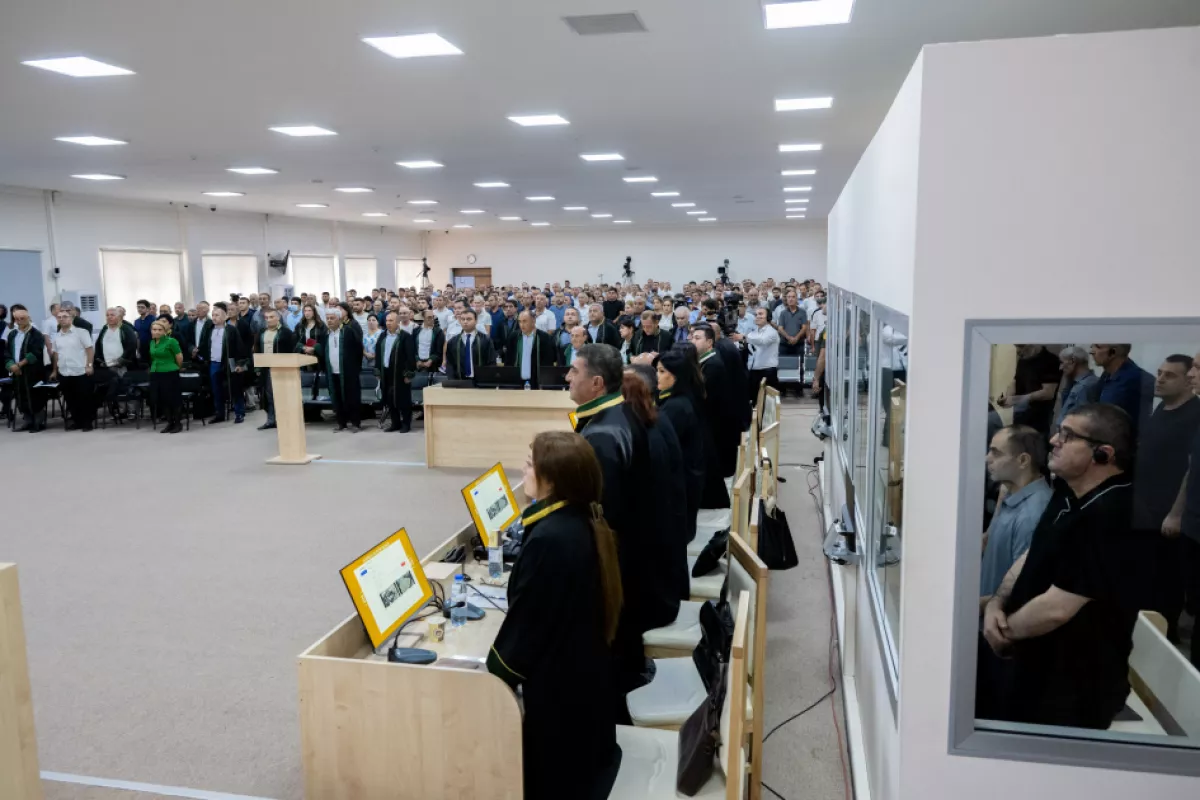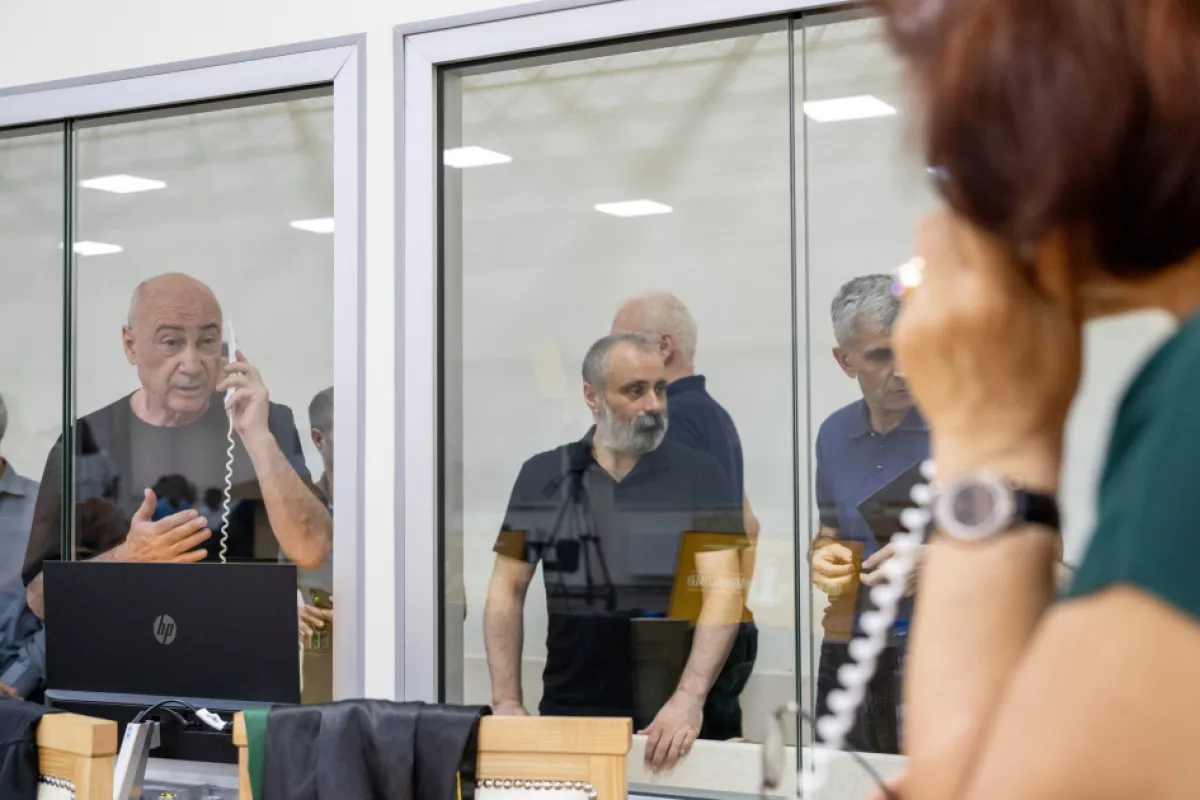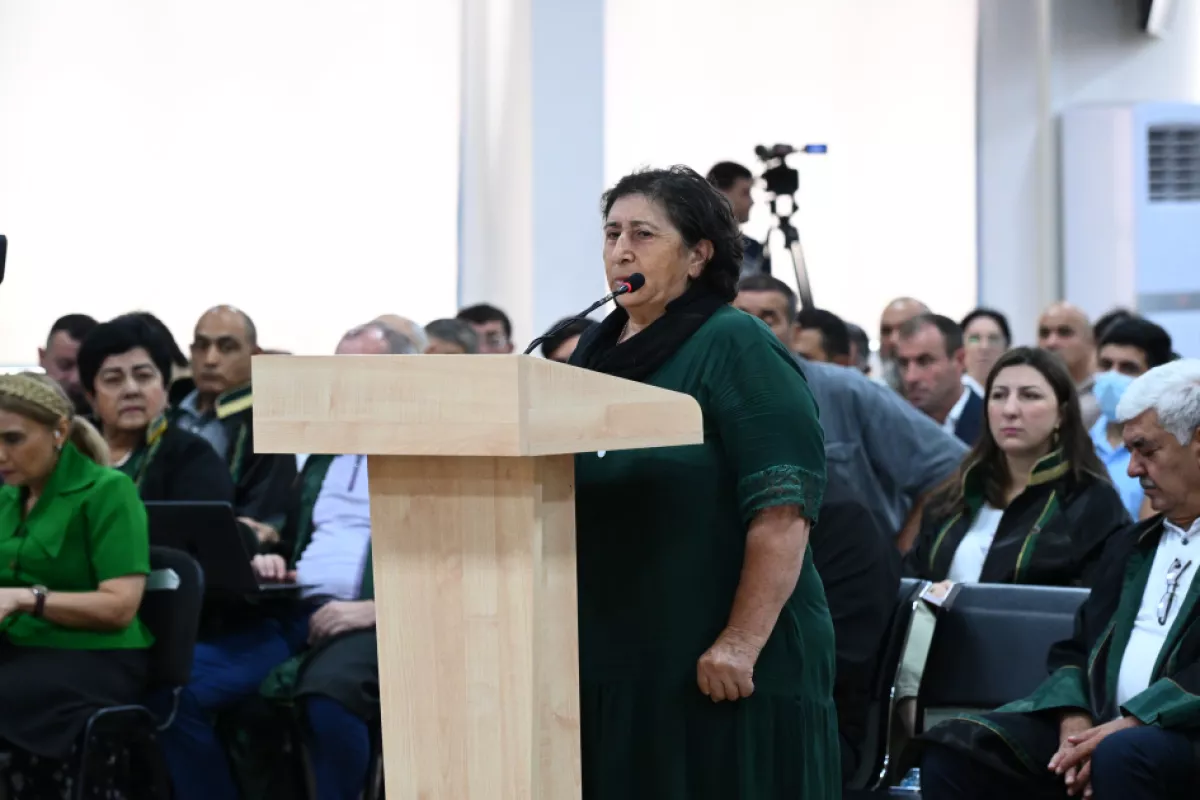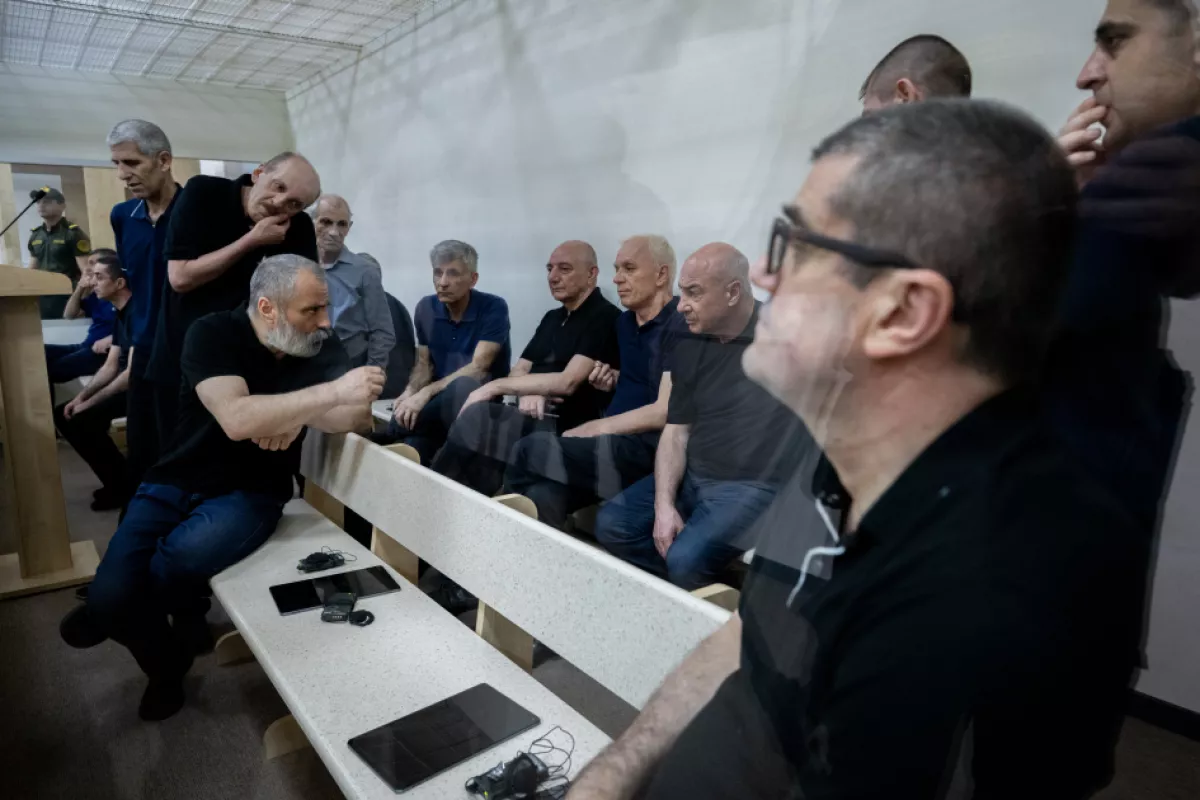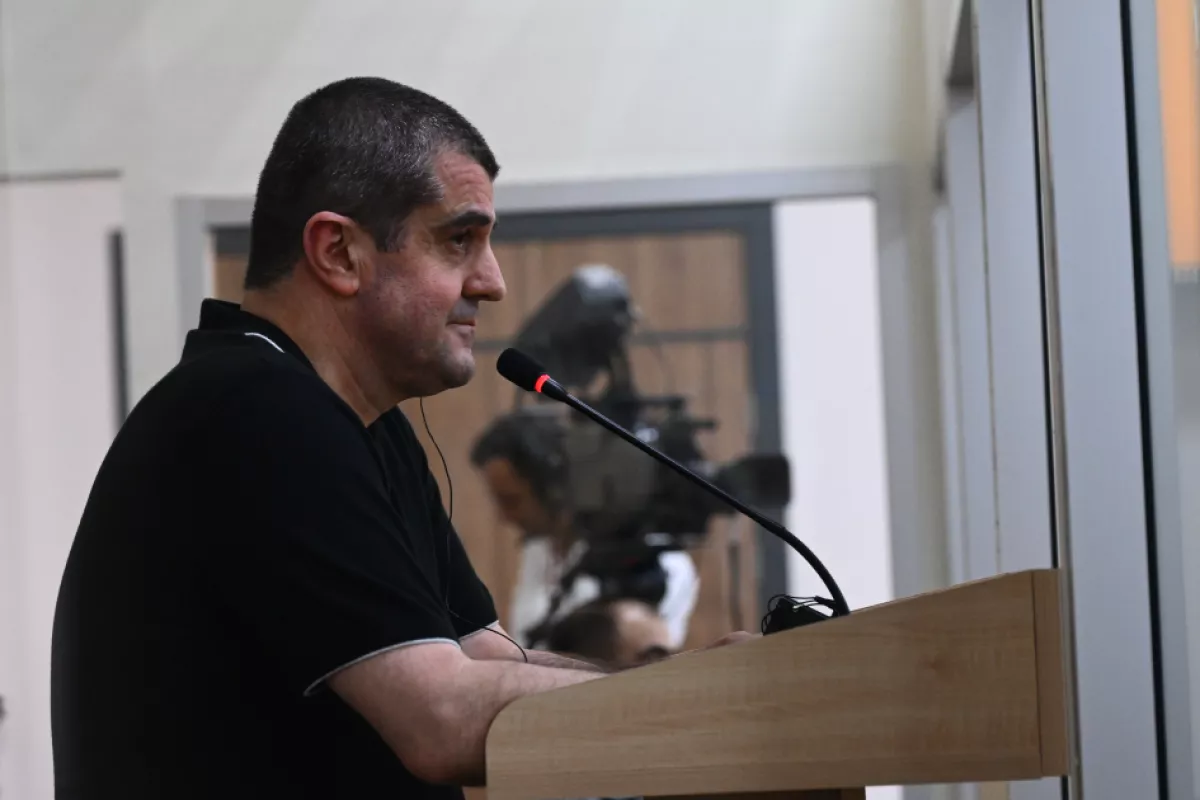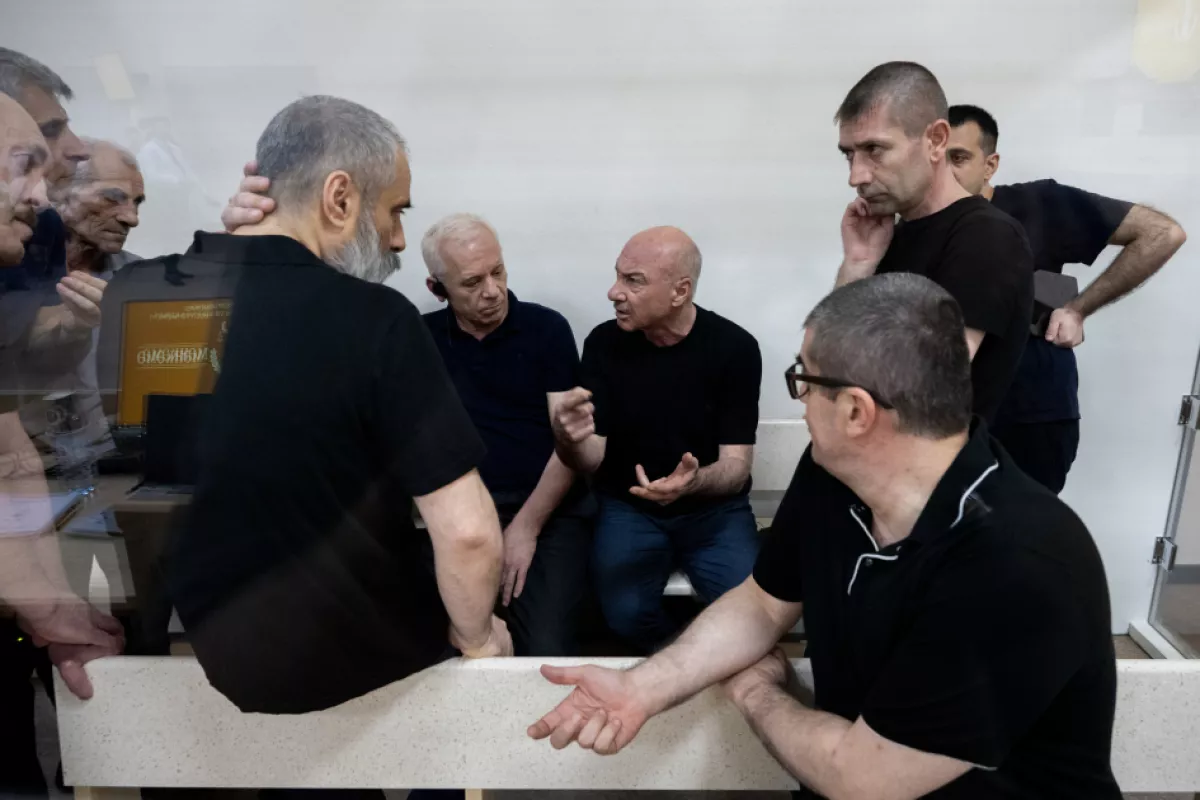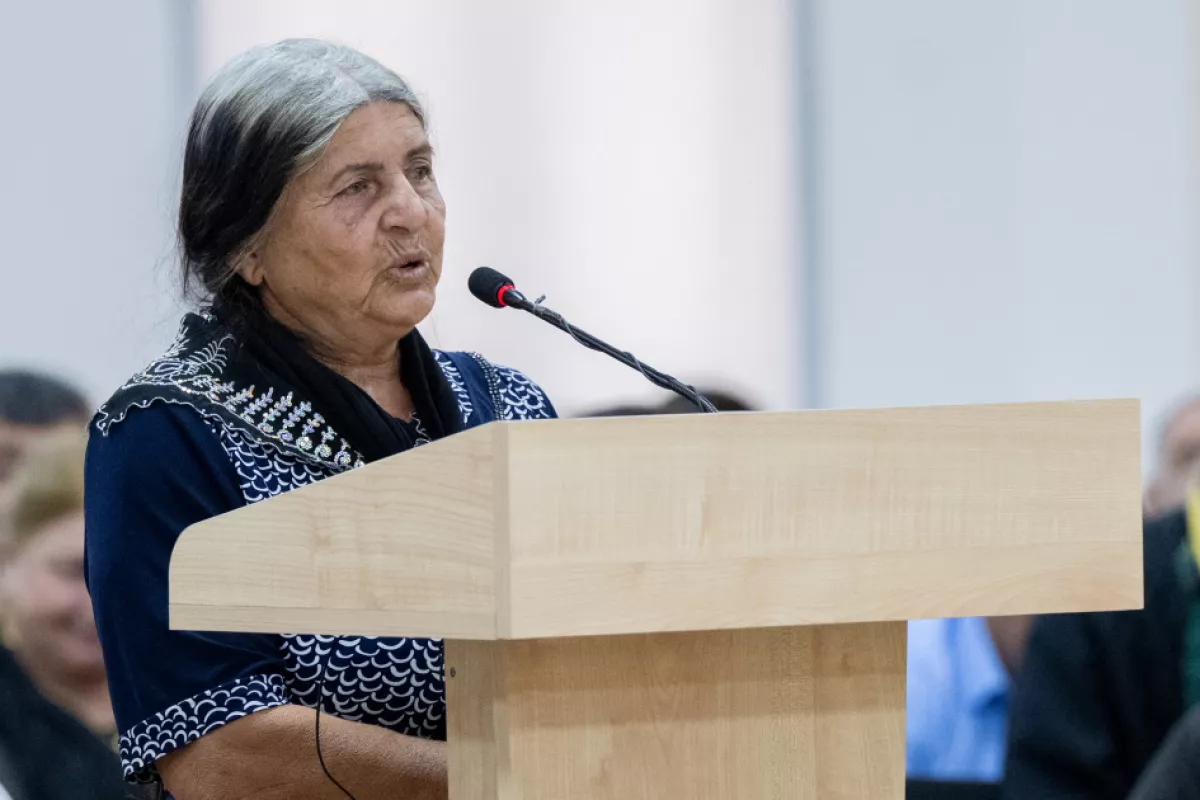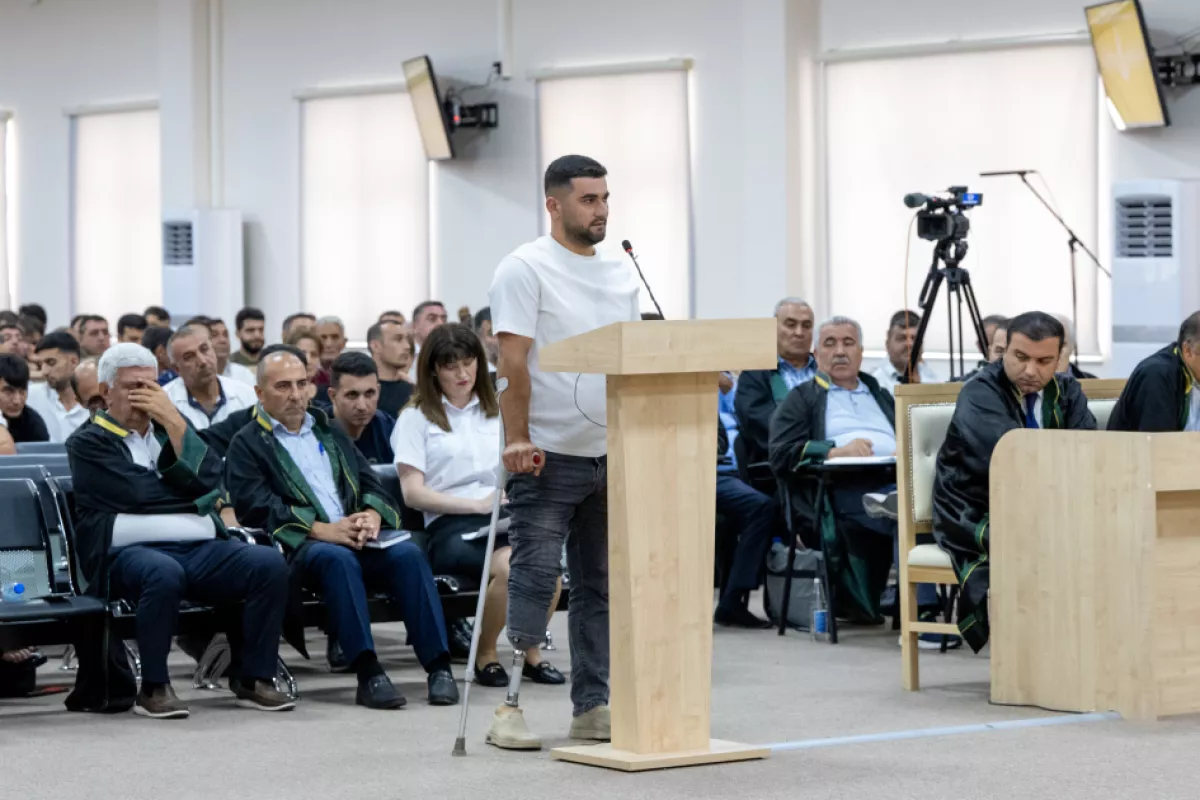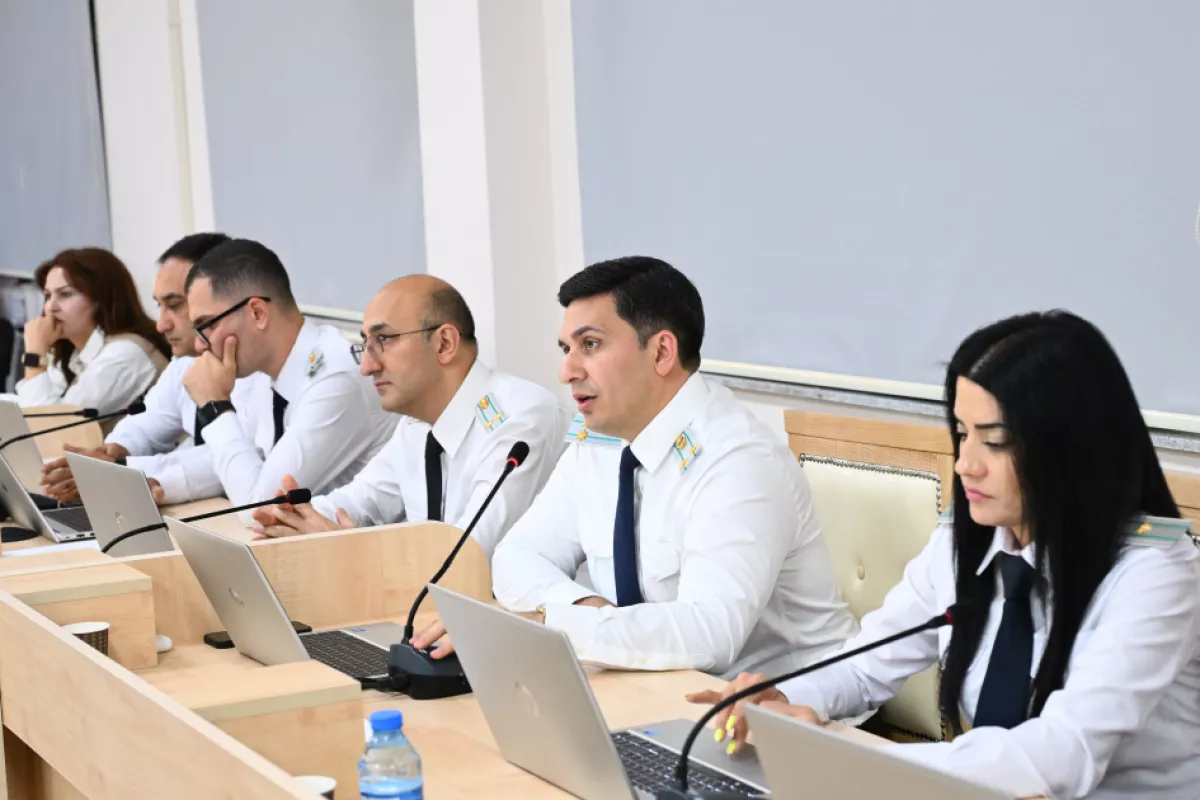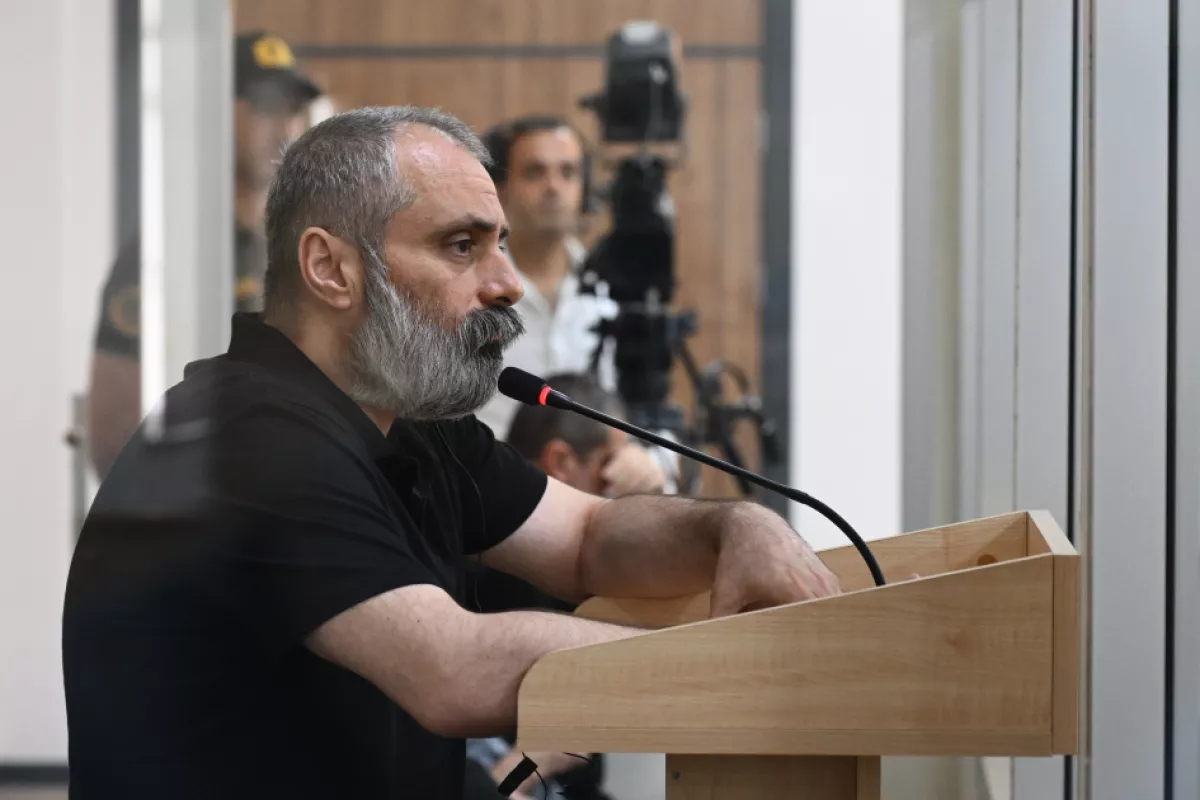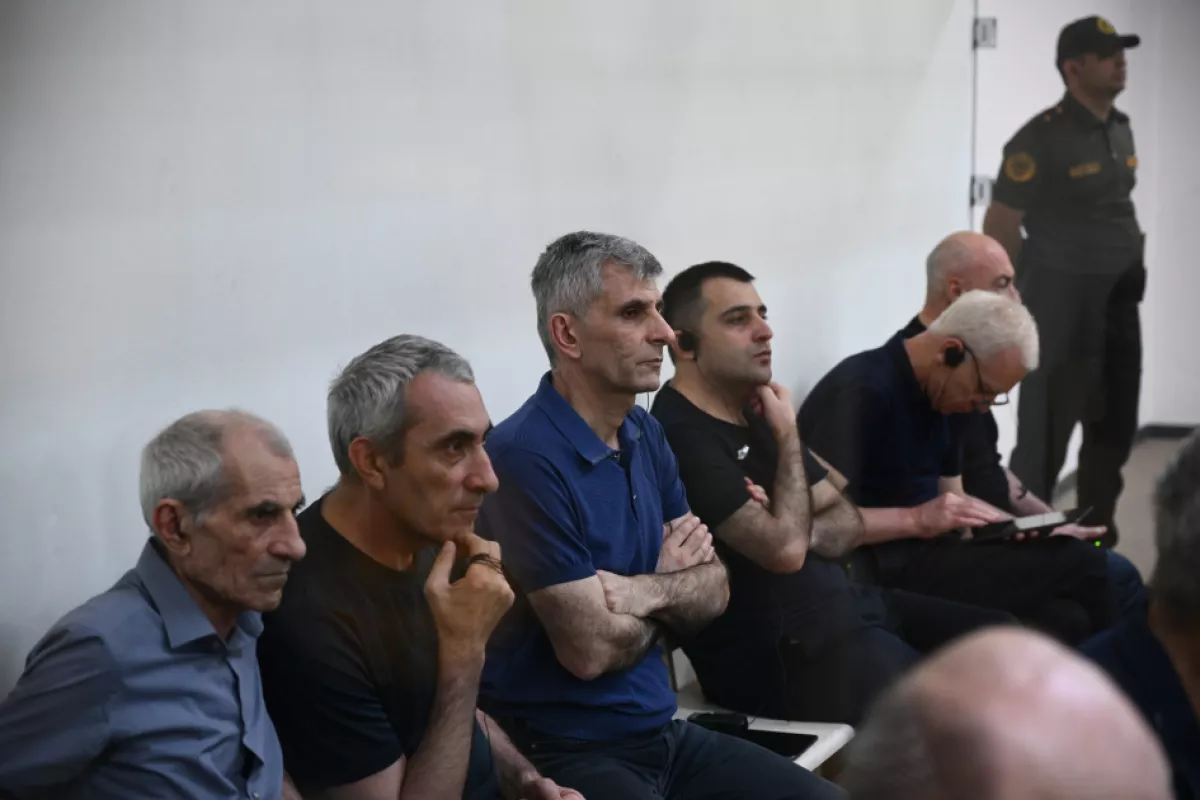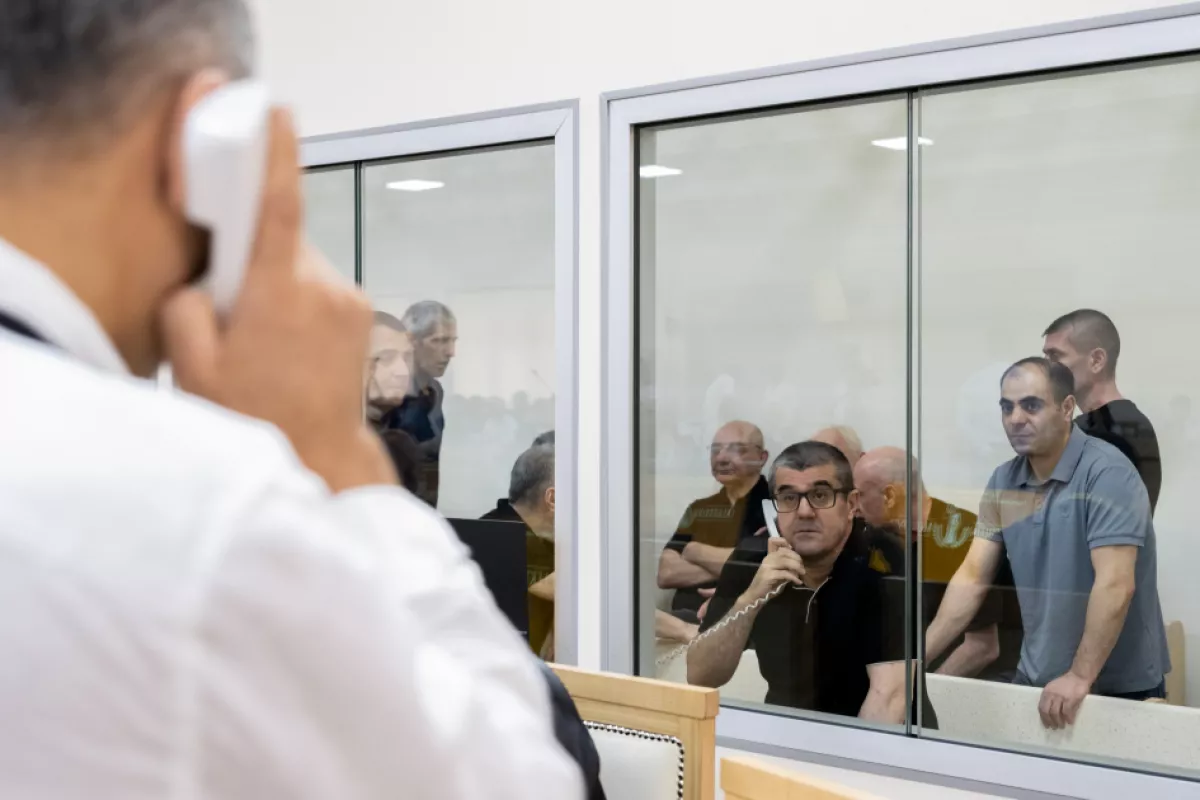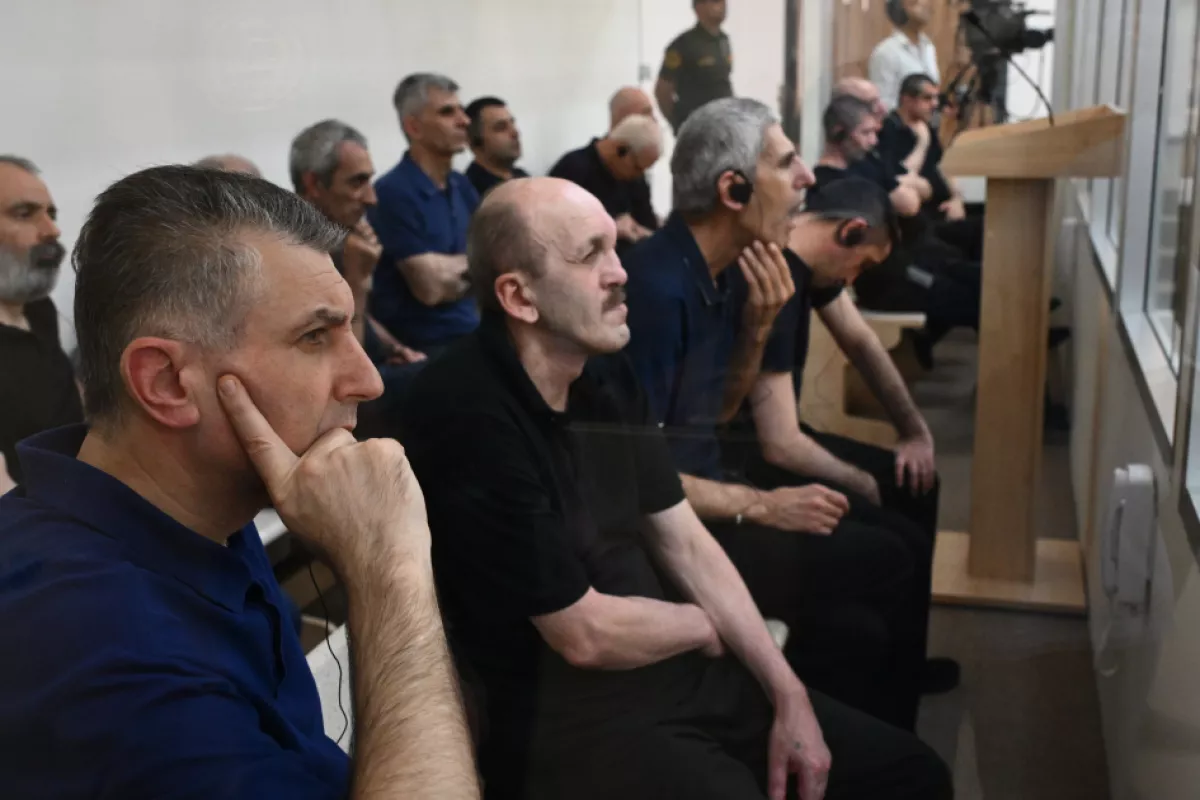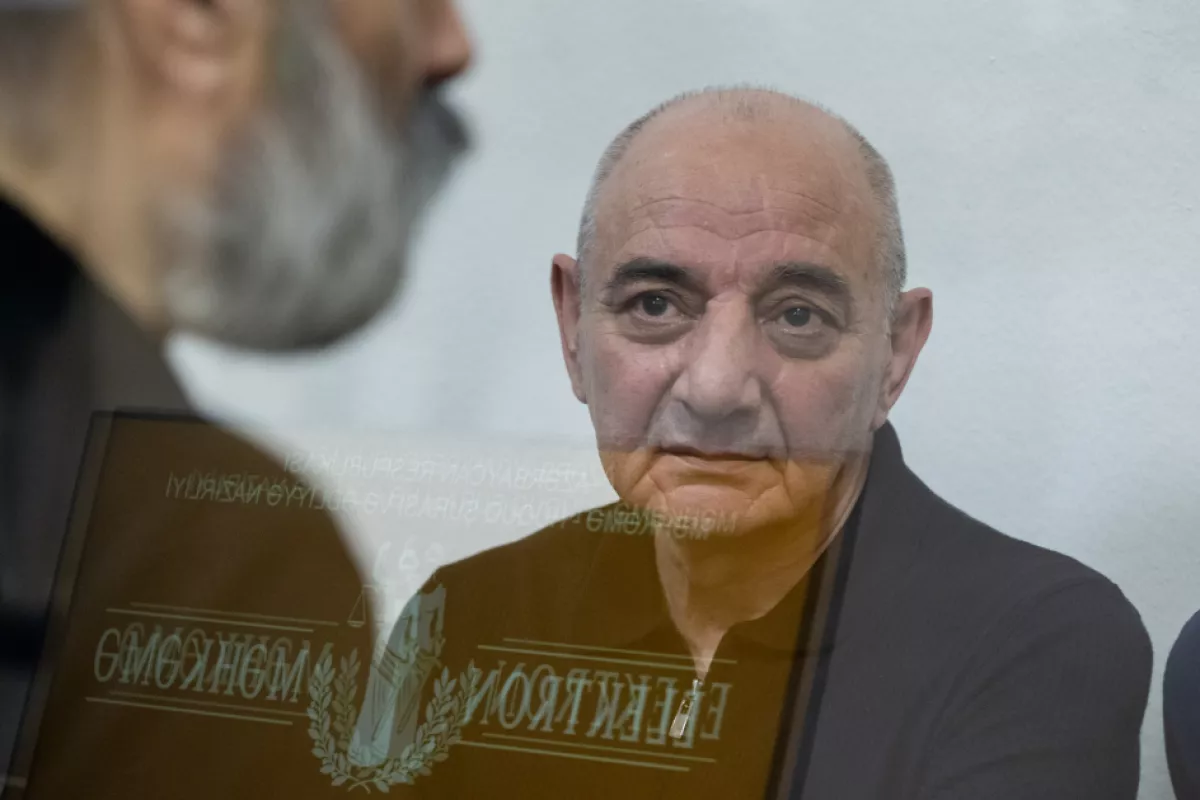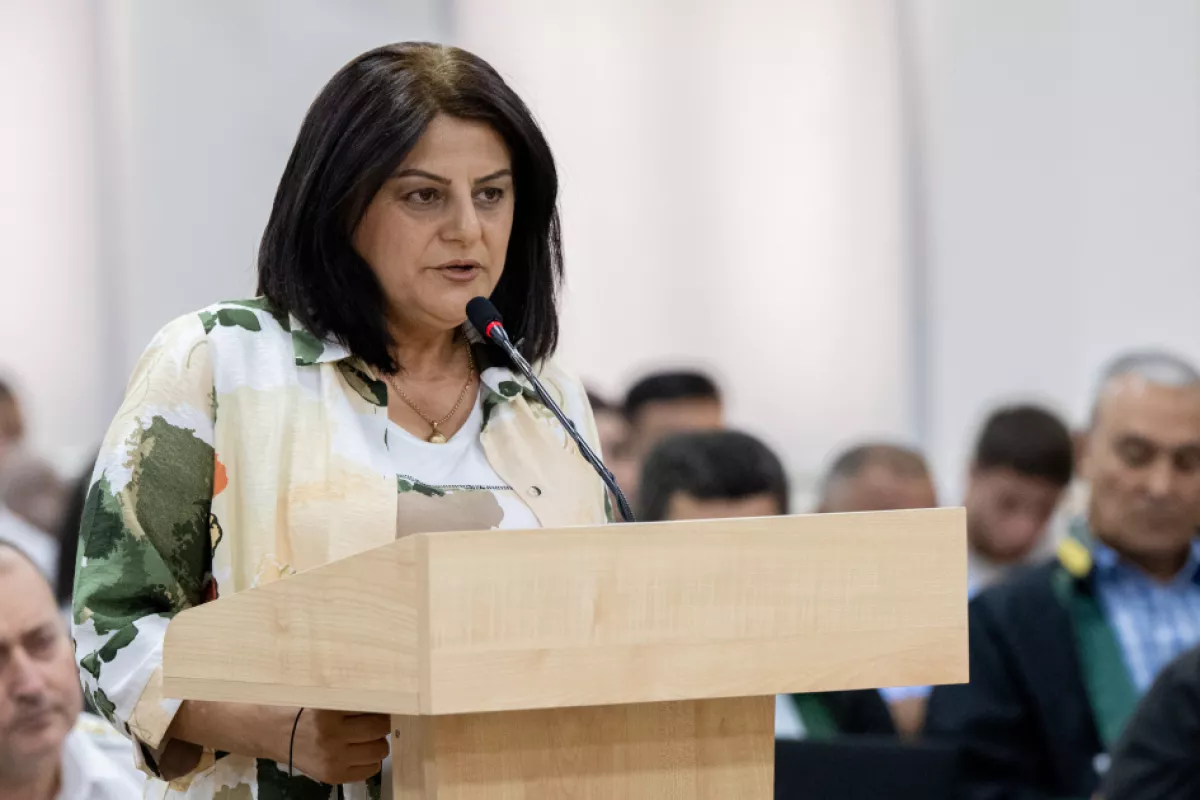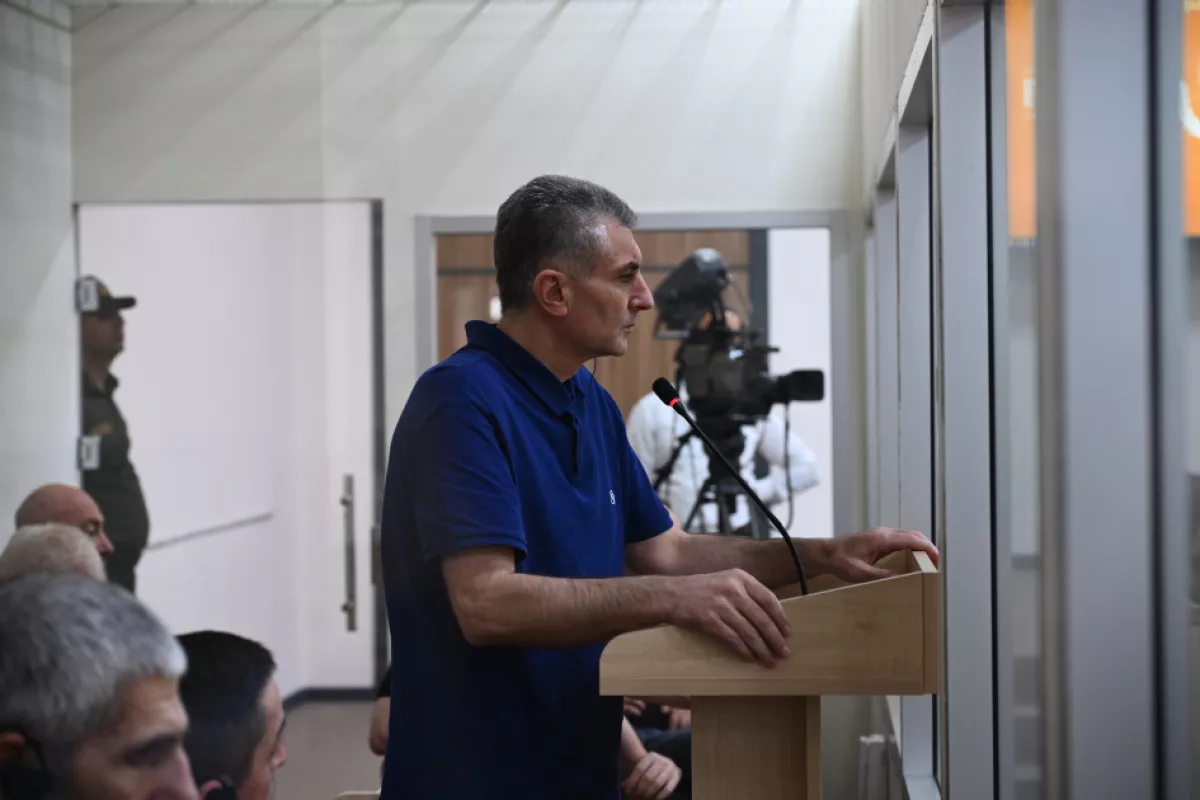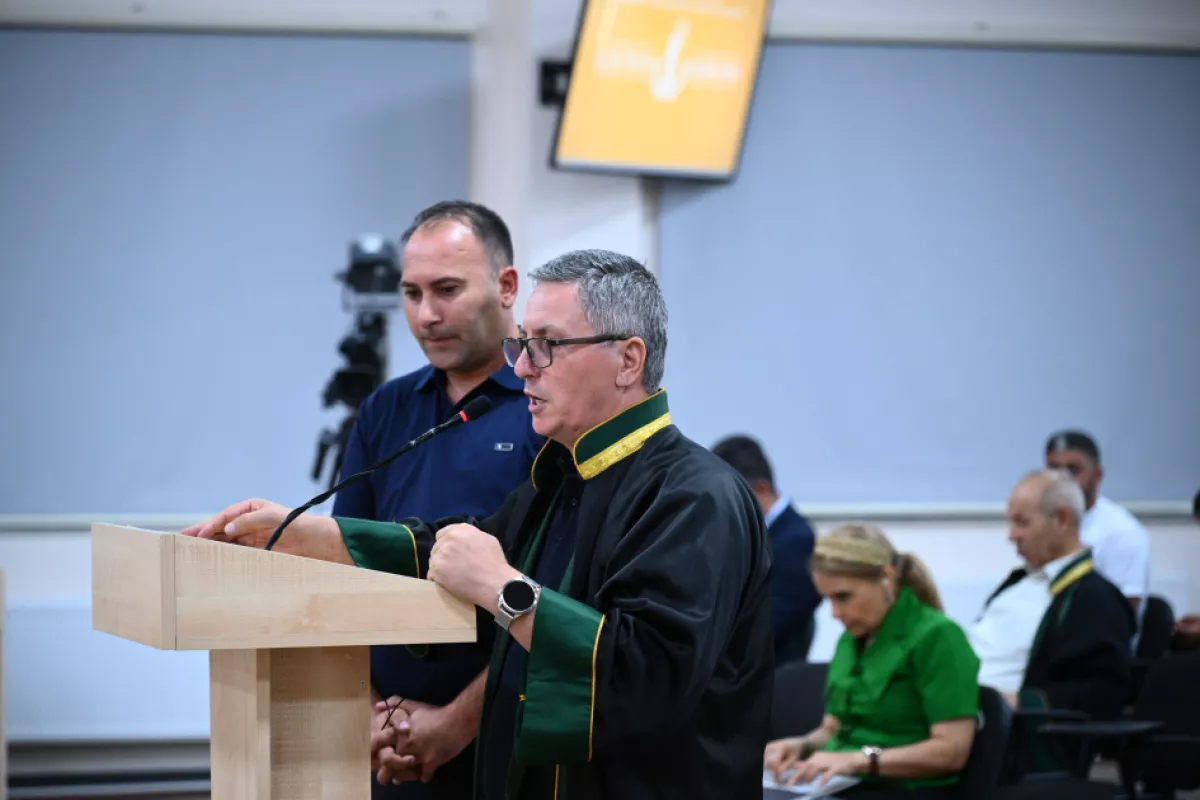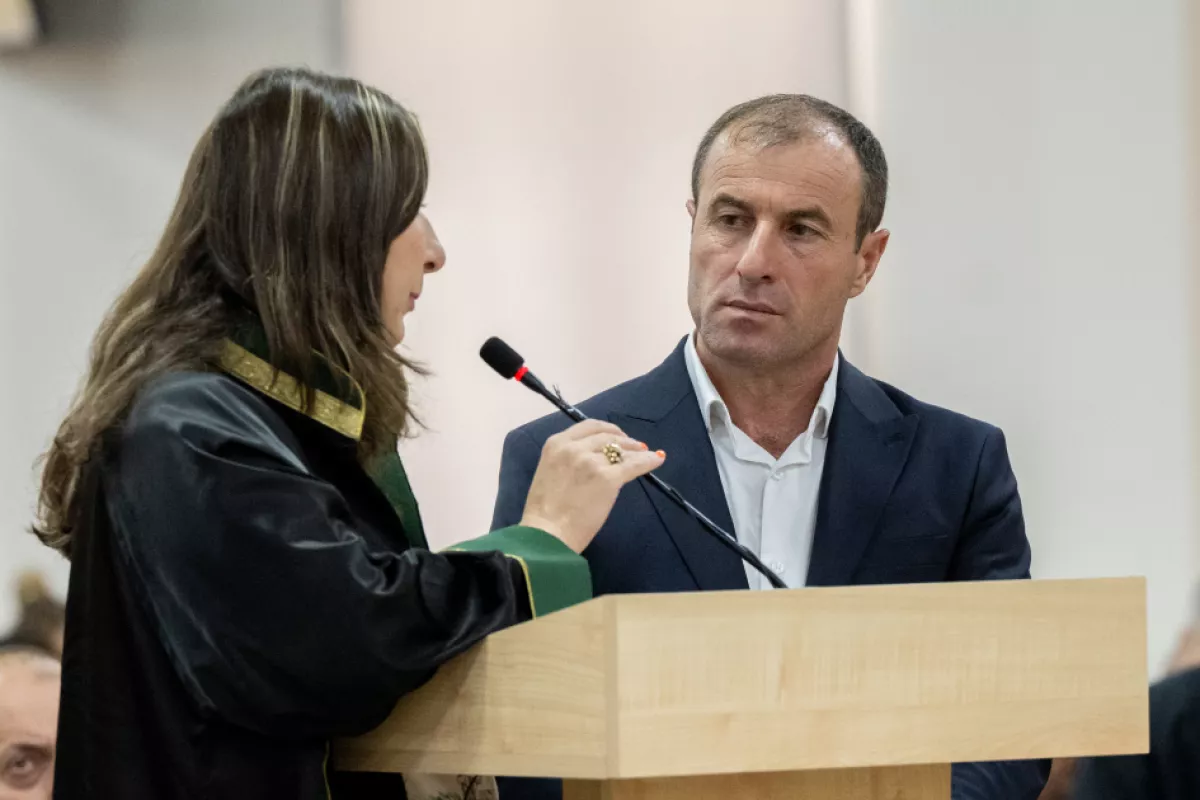Armenian war crimes case: Victims recount abductions, torture, and losses in Baku court PHOTO
On August 11, the open court hearing continued in the criminal cases against Armenian citizens Araik Harutyunyan, Arkadi Ghukasyan, Bako Sahakyan, Davit Ishkhanyan, Davit Babayan, Levon Mnatsakanyan, and others accused of committing crimes against peace and humanity, war crimes, including the preparation and waging of an aggressive war, genocide, violations of the laws and customs of war, as well as terrorism, financing of terrorism, the violent seizure and retention of power, and numerous other crimes committed by Armenia against Azerbaijan.
At the hearing held at the Baku Military Court under the chairmanship of Judge Zeynal Aghayev, with Judges Jamal Ramazanov and Anar Rzayev (reserve judge – Gunel Samadova) on the panel, each of the defendants was provided with an interpreter for the language they understand, as well as lawyers for their defence.
The court session was attended by the defendants, their defense lawyers, some of the victims, their legal successors and representatives, as well as the prosecutors representing the state prosecution.
Judge Zeynal Aghayev introduced to the victims participating in the court hearing for the first time the members of the court, the prosecutors representing the state prosecution, the interpreters, and other participants in the proceedings, and explained to them their rights and obligations as provided by law.
In her testimony, the legal successor of victim Rasul Suleymanov — his mother, Gunel Suleymanova — stated that her son was killed in 2020 during the 44-day Patriotic War as a result of shelling by the armed forces of Armenia.
The legal successor of victim Hasan Akbarov — his mother, Sanubar Akbarova — said that her son became a martyr in 2020 during the Patriotic War.
Victim Aybaniz Orujova recounted that in 1992, two days after the Khojaly genocide, she was taken hostage together with all members of her family, including her twin sons.
Answering questions from Nasir Bayramov, head of a department at the Prosecutor General’s Office responsible for supporting the state prosecution, the victim stated that she spent seven days in captivity in Khankendi. She was released on March 20, while her twin sons were freed on March 30.
“In captivity, I endured numerous acts of torture. Knives were held to my sons’ throats with threats to behead them. These were the torments I was subjected to,” the victim said.
In his testimony, Agil Ahmadov stated that in April 1997, he was seriously wounded and taken prisoner as a result of shelling by the Armenian armed forces in the Horadiz direction. He was held in Khankendi, which at the time was under the occupation of the Armenian armed forces.
Ahmadov said that a sham court was organised against him, which sentenced him to “death.” Answering questions from Senior Assistant to the Prosecutor General Vusal Aliyev, he noted that he was returned to the Azerbaijani side after one year and 11 months.
While in captivity, he was beaten and tortured by guards named Norik, Aram, and Ashot. Medical students, as part of their practical training, gave him injections and carried out other medical procedures.
In her testimony, victim Hafiza Safarova said that on December 7, 1991, during an attack on her native village of Divanalilar in the Fuzuli district, she and her relatives were taken hostage.
Answering questions from the Assistant to the Prosecutor General for Special Assignments Tugay Rahimli, the victim stated that in captivity they were kept in a cold room and she, along with other hostages, was subjected to ill-treatment. During captivity, her father, Karim Safarov, was killed under torture. Hafiza Safarova was released after seven days.
The legal successor of victim Oruj Jabbarov — his mother, Ulviya Jabbarova — testified that her son became a martyr in the Patriotic War. She noted that the armed forces of Armenia returned her son’s body only three months later.
Saida Jafarova stated that in 1992, during the Khojaly genocide, she sustained a gunshot wound as a result of shelling by the armed forces of Armenia. The victim said that during the genocide, the enemy committed mass killings of the elderly, children, and women. Answering questions from state prosecutor Vusal Abdullayev, she added that she managed to escape by crawling, despite her injuries, to the village of Shelli in the Aghdam district.
Kanan Vahidzada, Ozal Ismayilov, and Ravan Mammadov testified that in 2020, during the Patriotic War, they were wounded as a result of shelling by the armed forces of Armenia.
Sunay Adigozalov said that on October 5, 2023, he was injured in the village of Alkhanli in the Fuzuli district as a result of the detonation of a mine planted by the armed forces of Armenia.
Asaf Khudiyev stated that on November 14, 2020, while carrying out demining work as an employee of ANAMA, he was injured by a mine explosion in the village of Alkhanli in the Fuzuli district. It was later determined that the mine had been manufactured in Armenia.
Emin Bakhshaliev stated that on October 1, 2020, during the Patriotic War, he was wounded in the Sugovushan direction and was taken prisoner by Armenian armed forces four days later. His hands were tied with wire, and he was beaten.
Answering questions from state prosecutor Tarana Mammadova, he said he was held captive in Khankendi and Shusha, both then under occupation, as well as in the Armenian capital, Yerevan. He was beaten everywhere, tortured, and subjected to electric shocks. On December 14, 2020, he was returned to Azerbaijan.
Answering questions from the accused David Ishkhanyan, Emin Bakhshaliyev reported that his treatment is still ongoing.
Nuraddin Yolchuyev testified that during the Patriotic War, he was wounded on October 1 in the Sugovushan direction and was captured on October 2. He was beaten and then taken to the city of Khankendi. There, he underwent surgery without anaesthesia and endured terrible pain. Afterwards, he was transferred to Yerevan, where he was beaten and tortured again. On December 14, 2020, he was returned to Azerbaijan.
Seymur Ahmadov, Rafail Zulfigarov, and Matlab Allahverdiyev noted that at different times they were taken hostage by Armenian armed forces. All of them were beaten and tortured. Matlab Allahverdiyev had his gold teeth forcibly pulled out.
Mubariz Mammadov stated that he was captured on September 1, 1992, after being wounded near the village of Horadiz in the Fuzuli district. Answering questions from state prosecutor Fuad Musayev, he said that he was initially held in the village of Edilli, and later in the city of Yerevan. While in captivity, he was beaten with the butt of a rifle, a rubber baton, fists, and feet, and subjected to torture. On May 12, 1995, he was returned to Azerbaijan.
Hayal Abdullayev emphasised in his testimony that on May 28, 2022, while herding livestock in a part of the Fuzuli district liberated from occupation, he stepped on a mine.
Vugar Mehdiyev recounted that on October 23, 1993, he was taken hostage in the Fuzuli district. He escaped on December 18 of the same year.
Elshan Khalilov noted that on July 12, 2021, while working as a driver for a company in the Fuzuli district, he was injured by the explosion of a munition fired by the Armenian armed forces.
Bakhtiyar Taghiyev stated that he was taken prisoner by Armenian armed forces in Zangilan during the night of December 8–9, 1992. While in captivity, he was beaten and tortured. After one year, one month, and ten days, he was returned to Azerbaijan.
Ali Talibov testified that he was captured by Armenian armed forces in 1996 while serving in the military in Nakhchivan. He was returned to Azerbaijan after one month and eighteen days. During captivity, his nose was broken, and he was repeatedly beaten until he lost consciousness.
Daghlar Teymurov reported that he was wounded during the April clashes of 2016 and the Patriotic War of 2020.
Namat Mammadov said that in 1994 he was captured by Armenian armed forces on the Kharmy plain, subjected to torture, and released after 460 days.
Javanshir Hajiyev stated that on April 5, 2021, he stepped on a mine in the Gubadli district and was injured.
Alishan Safarov noted that he was injured by a mine explosion on the road to Tartar on February 18, 2022.
Residents of the Tartar district — Yadigar Safarov, Mushfig Gurbanov, and Khasay Ibrahimov — reported that the homes they lived in became uninhabitable at different times due to artillery shelling by Armenian armed forces.
Ramiz Huseynov stated that he was injured as a result of a mine explosion in Jabrayil in 1993.
Ilgar Najafov noted that he became a displaced person on April 2, 1993, following an attack by Armenian armed forces on the Kalbajar district.
Rahman Huseynov said that he became a displaced person from the village of Dashkasan in the Jabrayil district in 1993. At that time, his father went missing.
Victims Ismail Abbasov, Nabi Azimov, Almara Gurbanova, Vagif Chiragov, Sevda Mamisheva, Khaligverdi Nasibov, Nahid Huseynov, Faig Abbasov, Elshan Mirzayev, and Alovsat Musayev emphasised in their testimonies that they were forced to leave their places of residence (Shusha, Aghdara, Kalbajar) as a result of attacks by Armenian armed forces.
The victims also answered questions from the accused, including Araik Arutyunyan, David Manukyan, David Babayan, David Ishkhanian, the defence attorneys, and their own representatives.
The court session will continue on August 14.
Fifteen defendants of Armenian origin are accused in the criminal case concerning numerous crimes committed during the aggressive war waged by the Armenian state - including the aforementioned criminal association - on the territory of Azerbaijan, in violation of domestic and international legal norms. These crimes were committed for the purpose of military aggression against Azerbaijan and were carried out under the direct leadership and participation of the Armenian state, officials of its state institutions, its armed forces, and illegal armed formations, through their written and verbal orders, instructions, and guidelines; material, technical, and personnel support; centralized management; as well as under strict control and under the leadership and direct or indirect participation of Robert Sedraki Kocharyan, Serzh Azati Sargsyan, Vazgen Mikaeli Manukyan, Vazgen Zaveni Sargsyan, Samvel Andraniki Babayan, Vitali Mikaeli Balasanyan, Zori Hayki Balayan, Seyran Musheghi Ohanyan, Arshavir Surenovich Garamyan, Monte Charles Melkonyan, and others.
The following individuals - Arayik Vladimiri Harutyunyan, Arkadi Arshaviri Ghukasyan, Bako Sahaki Sahakyan, Davit Rubeni Ishkhanyan, David Azatini Manukyan, Davit Klimi Babayan, Levon Henrikovich Mnatsakanyan, Vasili Ivani Beglaryan, Erik Roberti Ghazaryan, Davit Nelsoni Allahverdiyan, Gurgen Homeri Stepanyan, Levon Romiki Balayan, Madat Arakelovich Babayan, Garik Grigori Martirosyan, and Melikset Vladimiri Pashayan - are being charged under the following articles of the Criminal Code of the Republic of Azerbaijan: Article 100 (planning, preparing, initiating, and waging a war of aggression); Article 102 (attacking persons or organizations enjoying international protection); Article 103 (genocide); Article 105 (extermination of the population); Article 106 (enslavement); Article 107 (deportation or forced displacement of population); Article 109 (persecution); Article 110 (enforced disappearance of persons); Article 112 (deprivation of liberty contrary to international law); Article 113 (torture); Article 114 (mercenary service); Article 115 (violation of the laws and customs of warfare); Article 116 (violation of international humanitarian law during armed conflict); Article 118 (military robbery); Article 120 (intentional murder); Article 192 (illegal entrepreneurship); Article 214 (terrorism); Article 214-1 (financing terrorism); Article 218 (creation of a criminal organization); Article 228 (illegal acquisition, transfer, sale, storage, transportation, and possession of weapons, ammunition, explosives, and devices); Article 270-1 (acts threatening aviation security); Article 277 (assassination of a state official or public figure); Article 278 (forcible seizure and retention of power, forcible change of the constitutional structure of the state); Article 279 (creation of armed groups not provided for by law); and additional articles.
By Khagan Isayev




